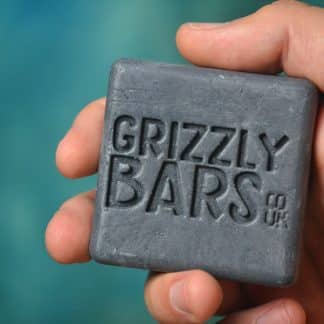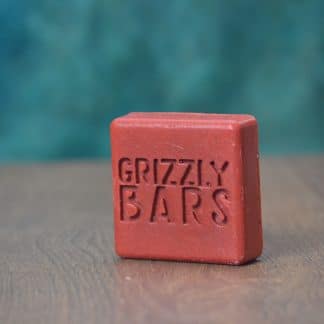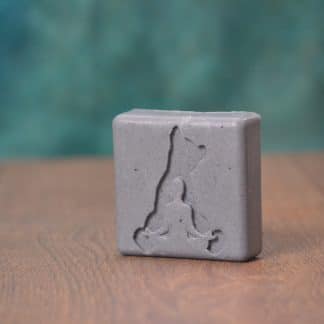Understanding vegan soap and its benefits
Vegan soap, also known as vegetable soap, is a type of soap made from fats or oils of vegetable origin rather than from saponified animal fats [1]. This means that vegan soap does not contain any animal products, making it a cruelty-free and ethical choice for those who follow a vegan lifestyle [2]. Historically, soap was made using animal tallow or fat, but advancements in soap-making techniques have allowed for the creation of vegan soaps that are entirely plant-based [3]. Vegan soap brands often use ingredients like coconut oil, olive oil, shea butter, and rice bran wax to create their products [4] [2]. These natural ingredients provide a gentle and nourishing cleansing experience for the skin [5]. By choosing vegan soap, individuals can support sustainable and animal-friendly practices while enjoying the benefits of a high-quality cleansing product.
-
Adventure – Charcoal, Tea Tree & Lemongrass£6.00 — or Original price was: £6.00.£5.00Current price is: £5.00. / month
-
Pirate – Bay Rum & Tobacco£6.00 — or Original price was: £6.00.£5.00Current price is: £5.00. / month
-
Woodland Walk – Sandal, Patchouli, Oakmoss, Cedar and Vetiver£6.00 — or Original price was: £6.00.£5.00Current price is: £5.00. / month
The ingredients used in vegan soap are carefully selected to provide effective cleansing properties without the use of animal-derived ingredients. Common ingredients in vegan soap include sodium cocoate (derived from coconuts) and sodium palm kernelate (derived from palm kernels) [4]. Olive oil, known for its moisturizing properties, is also frequently used in vegan soap formulations [6]. By using plant-based ingredients, vegan soap offers a natural and gentle alternative to traditional soaps that may contain harmful chemicals or animal-derived ingredients [5]. Homemade vegan soaps can be crafted using a variety of oils, such as coconut oil, palm oil, and olive oil, along with lye and distilled water [7]. These simple and natural ingredients make vegan soap a safe and nourishing option for all skin types [8].
Using vegan soap offers a range of benefits for both the skin and the environment. Vegan soap is known for its ability to strengthen the skin’s barrier, preventing the accumulation of bacteria and viruses on the skin’s surface [9]. The absence of harsh chemicals and pesticides in vegan soap makes it a safe and healthy option for daily use [10]. Furthermore, choosing vegan soap supports sustainable practices and reduces the demand for animal-derived ingredients, such as palm oil, which can have negative environmental impacts [11]. By opting for vegan soap, individuals can contribute to the preservation of the environment and the well-being of animals [12]. Additionally, many vegan soap brands prioritize eco-friendly packaging, further reducing their environmental footprint.
Choosing the right vegan soap
When choosing the right vegan soap, it is important to read ingredient labels carefully. Soap manufacturers are required to list their ingredients on the packaging, although the level of detail may vary [13]. While some soaps may only list basic ingredients like oils and lye, others may include a more extensive list of additives [14]. By reading the ingredient labels, you can ensure that the soap you choose does not contain any animal-derived ingredients, such as animal fats or by-products [15]. This step is crucial in selecting a truly vegan soap that aligns with your values and preferences.
In addition to reading ingredient labels, it is essential to avoid soaps that contain animal-derived ingredients. Some common animal-derived ingredients found in soaps include beeswax, lanolin, and retinol [16]. These ingredients are derived from animals and are not suitable for those following a vegan lifestyle. By actively avoiding soaps with these ingredients, you can ensure that the soap you choose is truly vegan and cruelty-free [5]. It is also important to research ethical brands that are committed to using only plant-based ingredients and avoiding animal testing [4]. By doing so, you can support companies that align with your values and contribute to a more compassionate and sustainable industry.
Fortunately, there are many vegan soap brands available in the market today. These brands offer a wide range of options, from bar soaps to liquid soaps, that are free from animal-derived ingredients [17]. Some popular vegan soap brands include Weleda, Friendly Soap, The Little Soap Company’s Eco Warrior, and Wild Sage + Co [18] [19] [20]. To make an informed decision, you can also refer to ethical and environmental rankings of soap brands, which assess their sustainability practices and commitment to animal welfare [21]. By choosing vegan soap and supporting ethical brands, you can enjoy clean and nourished skin while making a positive impact on the planet and animal welfare.
Making your own vegan soap at home
Making your own vegan soap at home is a rewarding and eco-friendly way to ensure that the products you use align with your values. To get started, gather the necessary ingredients and supplies [6]. Vegan soap is free from any animal-derived ingredients, such as gelatin, lard, or beeswax, which are commonly found in non-vegan soaps [22]. A basic vegan soap recipe may include ingredients such as coconut oil, olive oil, shea butter, and lye (sodium hydroxide) [23]. These ingredients can be easily sourced from local stores or online retailers. Additionally, you will need distilled water, a scale for measuring ingredients, a heat-resistant container for mixing, and soap molds [6].
Once you have gathered all the necessary ingredients and supplies, it’s time to follow a soap making recipe. There are various recipes available online or in soap making books that cater specifically to vegan soap making [24]. A typical recipe will involve measuring and mixing the oils, melting the solid oils, dissolving the lye in water, and combining the two mixtures. It is important to follow the recipe closely and take proper safety precautions when working with lye, as it is a caustic substance [2]. The soap mixture will then need to be poured into molds and left to cure for several weeks. During this time, the soap will harden and become suitable for use [25].
One of the advantages of making your own vegan soap is the ability to customize it according to your preferences. You can experiment with different oils, such as coconut oil, olive oil, or avocado oil, to achieve desired properties like lather or moisturization [26]. Additionally, you can add natural colorants, such as clay or herbal powders, for aesthetic appeal [27]. Fragrance can be added using essential oils, ensuring that your soap is free from synthetic fragrances [28]. By customizing your vegan soap, you can create unique blends that suit your skin type and personal preferences. So, why not give it a try and enjoy the satisfaction of using a soap that is not only good for your skin but also aligns with your values?



